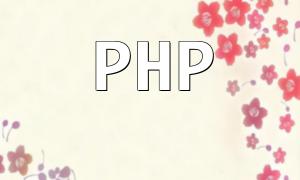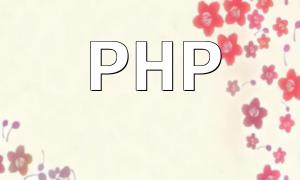In modern web development, JSON and PHP are two closely related and important technologies. When dealing with Chinese data, their collaboration becomes particularly crucial. This article explores the techniques for handling Chinese in JSON and PHP, helping developers better manage Chinese content.
JSON format uses UTF-8 encoding when storing and transmitting data. This means that JSON can effectively handle Chinese characters both for input and output. However, developers must ensure that PHP also correctly handles UTF-8 encoding when constructing JSON data, or else they might encounter garbled text issues.
When working with Chinese strings in PHP, it is crucial to ensure that PHP files are encoded in UTF-8. The mb_internal_encoding function in PHP can set the internal character encoding. For example:
In addition, if you need to manipulate Chinese data, you can use PHP's mb_* functions, such as mb_strlen and mb_substr. These functions are specifically designed to handle multi-byte characters and make it easier to process Chinese text.
When converting Chinese data into JSON format, the json_encode function in PHP is commonly used. To avoid garbled Chinese characters, it is recommended to use the JSON_UNESCAPED_UNICODE option. Example:
In PHP, the json_decode function can easily parse JSON data. The parsing process will automatically handle Chinese characters, ensuring they are correctly returned as strings.
When handling Chinese data, encoding inconsistencies often occur. To avoid such issues, it is recommended to follow these guidelines:
By properly configuring and using JSON and PHP's Chinese handling techniques, developers can effectively manage and display Chinese content. By following the methods mentioned above, developers can avoid common character encoding problems and improve the user experience. Whether generating or parsing JSON data, ensuring that UTF-8 encoding is used throughout is key to mastering Chinese handling in PHP.









